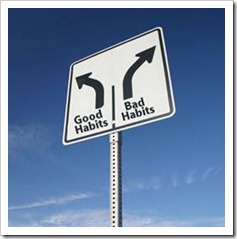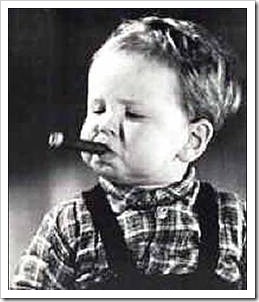
Good habits formed at youth make all the difference
– Aristotle
We meet habits in the first days of our lives. I remember coming home with Eden from the hospital after her birth. I had spent 10 days with a huge infection, high fever and without being able to breastfeed. Everyone, including the doctors and the nurses, said I would no longer have breast milk. I wanted to breastfeed very much and I was so disappointed with the birth experience that ended up in a cesarean that I was determined to succeed. Eden took breast milk with no problems at all and because she had been fed from a bottle every 4 hours for 10 days in the hospital, she had developed a habit and was happy breastfeeding every 4 hours.
Parents have the ability to develop many habits in their children. The younger the kids are when they develop their habits, the stronger and more natural they are to them. When people ask me about my own children’s success, I say that they have a “success habits”. I see “being healthy” as a habit, “being talented” as a habit and “being friendly” as a habit. The list of the habits we can instill in our children is endless.
Good habits, which bring our lower passions and appetites under automatic control, leave our natures free to explore the larger experiences of life. Too many of us divide and dissipate our energies in debating actions which should be taken for granted
– Ralph W. Sockman
Finding habits

Habits fall into eight categories:
Thinking habits – these habits include attitudes, prejudices, reactions and biases. For example: “If you are not educated and don’t have a degree, you can’t be successful in life” or “All women like shopping”.
Strategy habits – the ways we solve problems or handle situations. Some strategies are good for us, like planning ahead, while others are not so good, like doing things at the last minute.
Timing habits – habits related to managing time, like prioritizing, estimating, delegating and managing deadlines.
Relationship habits – habits that form the way we interact with others, like being aggressive, showing off, being considerate, forgiving, caring and showing kindness.
Ego habits – habits connected to status, territory and power, such as insisting that someone else will address you in a specific way in order to demonstrate your power.
Emotional habits – habits that trigger emotions, like being afraid when you are in an abusive relationship or feeling relaxed whenever you take a bath.
Physical habits – habits associated with moving and using your body, such as the way you speak, walk, laugh, sit, stand… Those habits can be noticed easily when you watch yourself in a video or when you practice in front of the mirror.
Old habits – habits that we acquired in the past and we still use today although our circumstances have changed. These include the good habits that we justify to ourselves, like “When I was 7, <something> happened to me and since then, I am very careful about this” or limiting, difficult ones, like “When I was 7, one girl was very rude to me when I came to school with my glasses and since then, I never use them”.
Habit and flexibility

Habits are like muscles and they are subject to the way we use them. If we work on their flexibility, they will allow us to move freely, but if we only work on power, they will be tight and painful.
There are ways to know if you are working your muscles to be flexible or tight and they are very simple.
- If you find yourself in similar situations you do not like and that make you unhappy over and over again, you may have a habit that is running your life.
- If you do something over and over again and still do not get what you want, this habitual course of action is rigid and is causing you pain.
- If you convince yourself that you have been doing it differently, but you still get the same negative outcome, it is a sign your habit is rigid and you should reconsider applying flexibility in other places.
It is more true to say that our opinions depend upon our lives and habits, than to say that our lives and habits depend on our opinions
– Frederick William Robertson
Come back next week for the final post about habits and learn how to break bad habits and make room for better ones.
Be happy,
Ronit
This post is part of the series How to Change Habits:
- How to Change Habits: Servants or Masters
- How to Change Habits: Habit Types and How they Form
- How to Change Habits: Flexibility of the Mind











